ROAD TO 2021 LOCAL ELECTIONS
Political party manifestos haul out the promises — oops, it’s now ‘commitments’ — to woo voters
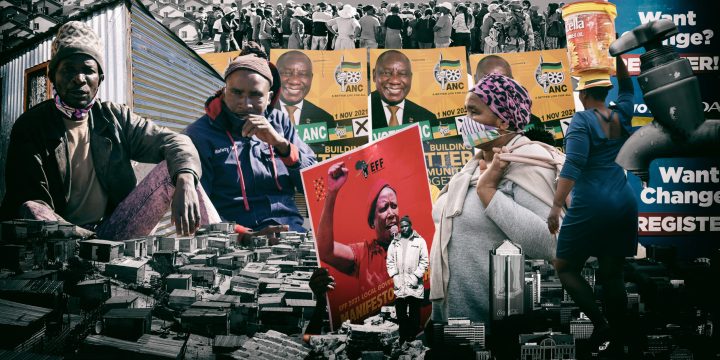
From clean water and dignified sanitation, repaired potholes to land and property audits and more broadband. It’s all in the 2021 municipal poll manifestos — although disillusionment and disengagement may yet be the spanner in the election wheel.
 ANC manifesto
ANC manifesto
“We will do and be better,” seems the pay-off line for the governing ANC. Acknowledging it hasn’t done that well in municipalities and hasn’t deployed its best people, the party’s 2021 local government manifesto heavily relies on national issues like jobs, procurement reform and Eskom, and reminders of how the ANC since 1994 introduced free basic services and boosted the social wage through grants, subsidised education and free housing. ANC party president Cyril Ramaphosa headlines the manifesto entitled “Building Better Communities Together”.
Councillors, council and corruption
- Lifestyle audits and signed performance agreements for councillors, mayors and managers.
- “Remove from office those who fail to do what they are paid to do” to ensure ethical leaders, managers, and workers.
- Commitment to engage at the National Economic Development and Labour Council on strengthening the ban on politically exposed persons doing business with the state.
- Insource work and end labour broking for sustainable employment in municipalities.
- Defeat patriarchy.
Water, sewage
- Maintain and develop water and sewerage infrastructure, including fixing broken pipes; drastically reduce water leaks.
- Increase numbers of boreholes and water tanks in communities.
- Rehabilitate wastewater equipment.
- Expand employment, increase local production of components used in tackling water and sanitation backlogs.
Municipal basic services — and more promised offerings
- More WiFi hotspots in communities at libraries, hospitals, clinics, schools and elsewhere by expanding network infrastructure.
- Safe and reliable electricity through stabilising Eskom’s financials, increased use of renewable energy — with new energy generation also creating public job opportunities as the just transition linked to the retirement of coal power stations ensures workers’ economic opportunities.
- Fast-tracked land reform to ensure communities are located on well-situated land, as informal settlements are upgraded to counter urban sprawl.
- Rural areas to be linked to urban markets, while land is made available for cooperative communal food gardens — alongside developing fresh produce markets and foodstuff sales in “community-owned stores”.
- Amend or repeal “restrictive municipal bylaws on trading, land use, urban production of crops” and such towards better land use and economic activities.
On the local economy front
- Overall, municipalities are part of the “whole of government approach” to planning, budgeting, monitoring and implementation at district council level under the policies of “one plan” and “one budget”.
- Continuing to strengthen social security for vulnerable groups and linking this to mass employment programmes, while also remodelling the Community Works Programme.
- Monitor food prices and track food affordability for the majority of people while ensuring “unrestricted development of urban and pavement gardens” for food security.
- Revitalise cooperatives and revitalise infrastructure and industrial parks to attract investment and create community-based employment.
- Build the waste recycling economy and integrate waste pickers into revitalised buyback centres.
- Reduce red tape, especially for small and informal businesses, speed up approvals and reduce licensing costs (Note: in his manifesto launch address on 27 September, Ramaphosa said: “We will reduce or remove the licence fees that many small and informal businesses have to pay in order to ply their trade.”)
- Build traders’ stalls on busy streets and areas with pedestrian traffic in consultation with “representative membership-based organisations of informal traders”.
- Develop “the night-time economy, leisure, and sporting activities”, including initiatives for retailers to remain open later, linked to more WiFi spots, better security and good public space lighting.
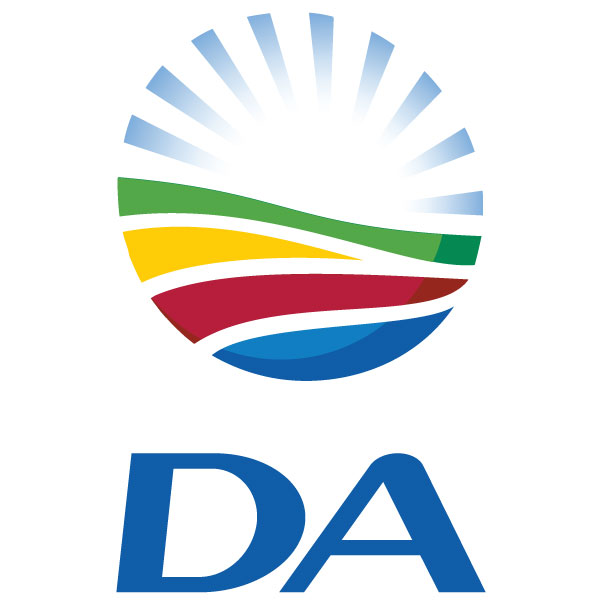
DA manifesto
Getting it done is what the DA built its 2021 local government offering around. This includes referencing successes — from wheelie bins in Cape Agulhas to CCTV cameras in Midvaal — and hammering home its Cape Town and Western Cape administrations’ track records. But it also reminds residents of their duties, from paying for services to sticking to the rules. The DA manifesto front shows a diverse crowd waving South African flags, headed: “A record of action and a promise of more”.
Councillors, council and corruption
- Clearly communicated service level agreements and turnaround times on refuse collection, burst pipes, electrical faults, pothole repairs — linked to a responsible political principal/individual for accountability.
- Effective billing for those who can pay; better support to indigent residents.
- Officials appointed fairly, “based on the value that they add… not their political connections”.
Water, sewage
- Access to reliable, clean, running water that is safe to drink and to use to prepare food — and is regularly tested.
- Fully compliant, well managed wastewater treatment works so communities are not exposed to raw sewage in streets, yards and homes.
- Refurbishment, replacement of water infrastructure, while reducing reaction times to burst pipes — and working with other government spheres to provide water tankers and alternative water sources “in municipalities where water provision has collapsed”.
Municipal basic services — and more promised offerings
- Effective waste collection and rubbish disposal, including regular refuse collection in formal and informal communities and for businesses, while in rural areas waste collection points to be linked to local buyback centres.
- Promoting recycling, including free drop-off facilities, and integrating waste pickers who collect up to 90% of the recyclable material from households into this system.
- Releasing unused state-owned land for housing after considering the land’s potential for other economic or social purposes; in situ upgrades of informal settlements “where viable” and densification of “existing, well located, and low-density neighbourhoods”.
- Pushing renewable energy projects to reduce dependency on Eskom, as residents and businesses sell excess solar- and wind-generated electricity back to the grid.
- Reclaiming “public spaces currently taken over by lawlessness, litter, and neglect”, while installing litterbins and cutting grass regularly.
- Promoting safer roads through law enforcement, including roadside vehicle roadworthiness testing, “sobriety checkpoints” and maintained traffic lights, while pursuing an integrated public transport system.
- Heavy on local metro and traffic policing — however, the Constitution in Section 199(1) talks of a single police service for South Africa — backed by municipal courts, while also looking to buy cameras for public order policing and local crime information services like CCTV cameras and gunfire detection systems.
- Still on policing, neighbourhood watches, crime patrols, and other community policing; strategies like reservists and “the rent-a-cop model” to be supported as part of local law enforcement.
On the local economy front
- Making doing business easier by, among other considerations, decreasing the time, costs and number of procedures it takes to get a construction permit, to register property or to get electricity.
- Formalise relationships with strategic business partners in locally significant sectors, backed by research to be sustainable and contribute to economic growth.
- Database of the homeless.
- Municipal procurement to reduce inequality by using “competent, value-for-money service providers”, while also focusing on “proactively and effectively regulated” informal trade and economic activity.
- Investigate the feasibility of providing work-seekers with free transport in metros “within designated days and hours”.
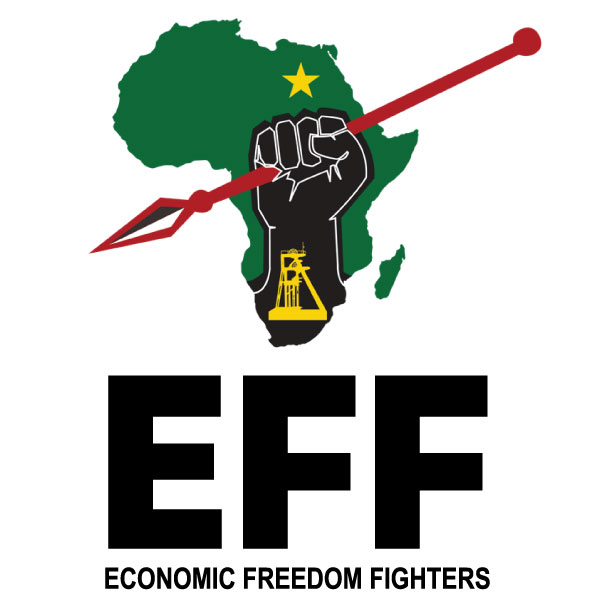
EFF manifesto
With Jobs and Land, Now! the EFF continues its 2016 national election outlook into the 2021 local government poll. Talking of commitments, the aims are “self-reliant, corrupt-free municipalities that deliver reliable services to our people” within EFF policy pillars like expropriation without compensation and nationalising banks and mines. A main manifesto is elaborated, with provincial ones listing a hall in this ward or toilets in that ward. An unapologetically red manifesto cover-page sports the party motto and “Vote EFF”.
Councillors, council and corruption
- A toll-free anti-fraud and corruption hotline, and corruption matters settled within two months as compensation is paid to whistle-blowers.
- An opposition councillor to chair the municipal public accounts committee, or the council’s public spending watchdog, to safeguard transparency and oversight.
- All municipal services from security and cleaning to gardening must be insourced; at least 40% of municipal workers must be aged between 18 and 35.
- Municipal offices, like clinics, to stay open overnight and on weekends.
Water, sewage
- Eradicate bucket toilets so “each South African” has inhouse sanitation and hot running water, while all schools must have flushing toilets, as must public spaces like cemeteries and stadiums, while such facilities will be built alongside main roads.
- Consistent, reliable waste removal in all townships and rural areas; dustbins in all public spaces.
- Build septic tanks and sewerage systems for rural areas, townships and schools without access to sewerage systems.
Municipal basic services — and more promised offerings
- A land audit to determine ownership, with a land reform plan to expropriate abandoned and unused land for redistribution to the landless to end land hunger, and provide access to land also for urban agriculture. “Every EFF municipality will repossess all municipal stolen land.”
- Removal of all apartheid statues to a dedicated museum themed “Never Again”, while a municipal arts, culture, and heritage fund allows artists “to paint and beautify municipal facilities and public spaces”.
- Social grant recipients automatically qualify without registration as indigents for free basic services, as each mayor’s office must have an Indigent Unit by June 2022. Municipal lists of indigent households submitted to Eskom to provide electricity by November 2022.
- A property wealth tax to subsidise indigent families, who can bury their relatives free of charge while their qualifying learners will “automatically qualify for municipal bursaries”. All matriculants get free driver’s licence lessons and a driver’s licence test.
- Youth development integrated into municipal planning; women empowerment.
- Incentivise businesses that use clean energy, recycle water and limit pollution, while identifying critical ecological areas, including critical freshwater ecosystems for which management plans must be drafted.
- All municipal housing must be built with solar power, as all roads, including those in townships, must be paved — and libraries, schools and community halls to be built with reliable WiFi.
On the local economy front
- Municipal-owned abattoirs for black-owned livestock farms, while fresh produce markets are built, with a minimum of 50% access by women and youth as tractors, seeds and farming implements are made available for interested families.
- Declare a municipal special economic zone with no company taxes, alongside building allowances, in return for jobs and contributions to municipal services. Property taxes and rates rebates for any company that creates at least 200 jobs.
- Build stalls for street vendors, and putting an end to confiscation their goods.

IFP manifesto
Its 2021 election motto “Trust us. We work for you” continues the IFP’s May 2019 election trust theme that boosted its performance at the hustings then. But it’s local government, and the central manifesto outlining a 10-point plan, is fleshed out with specific pledges for districts/provinces with firm appeals to go out to vote on 1 November. The manifesto, and its précis two-pager, are heavy on party colours — and are headlined by party founder and President Emeritus Prince Mangosuthu Buthelezi.
Councillors, council and corruption
- Integrity through “servant leadership” — each of the 2,570 councillor candidates sign pledges of excellence — accountability and responsive governance, with the commitment to eradicate corruption, and to clean governance.
- Elected public representatives will take residents’ calls, read their messages and make residents’ needs top priority, and find solutions.
Water, sewage
- Clean water by investing in infrastructure and household access, alongside prioritising the repairs of water leaks and drains.
- Ensuring functional sewerage systems to boost access to sanitation; upgrade all stormwater drainage systems to run underground.
Municipal basic services — and more promised offerings
- Dignified housing that is efficiently and fairly allocated, title deeds, and publicising the housing database to ensure transparency.
- Formalising informal settlements, but also providing serviced stands to those who want to build for themselves. In addition in Gauteng, for example, apartheid-era single-sex migrant workers’ hostels to be converted into family units.
- Accessible public transport to move people safely and efficiently. And IFP councils in Gauteng, for example, also would provide free access to public transport services for active job seekers, the elderly and people living with disabilities.
- Timeous repair of potholes, faulty traffic lights and install necessary traffic calming measures. It’s part of the overall pledge to maintain municipal infrastructure.
- Prioritising well-equipped clinics with professionals that are accessible to all; further enhancing access to primary healthcare through mobile municipal clinics, particularly in rural areas, and investment in municipal ambulance services.
- Develop recreational facilities like community libraries and arts and sports centres.
- Fighting gender-based violence by employing social workers, improving access to safe houses, but also expanding access to treatment centres and drug rehabilitation programmes — and promoting non-sexism.
- Improved law enforcement, also better resourced, and cooperation with community policing forums to boost the policing capacity to eradicate cross-border crimes, trafficking, syndicates and gangsterism.
- Prioritise documenting undocumented persons.
- Emphasising education to “build the next generation” by prioritising early childhood development centres, but also sports fields.
- Bursaries for indigent learners; prioritising sanitary dignity for indigent schoolgirls.
- Expanding electricity access to homes and businesses so “we light up your life”; also pursue renewable energy projects.
- Free public WiFi hubs so everyone is connected.
On the local economy front
- Prioritising localisation, industrialisation and beneficiation for job creation; insourcing municipal workers and sourcing goods locally.
- Recognising the importance of traditional leaders, provide support and resources to amakhosi to ensure communities’ needs are met.
- Supporting entrepreneurs by, for example, speeding up licensing.
- Supporting subsistence farmers, developing cooperatives and assisting emerging farmers, especially women and youth-led projects.
- Food security, including necessary access to land and sustainable land use; also ensuring farmworkers’ rights are respected and needs met.
- Promote self-reliance and self-help through skills development, bursaries and training.
- Prioritising South Africans for job and trade opportunities.
And then some debut in the 2021 local government elections after parting ways with the DA

Good manifesto
Ex-Cape Town DA mayor Patricia de Lille, now public works minister, goes to the hustings for the first time for Good, although she’s an election veteran. Since launching the party’s plan for South Africa manifesto in mid-September, posters of her in orange boxing gloves popped up urging, “Make your hood GOOD”.
Councillors, council and corruption
- Stop corruption and cadre deployment; prosecute corrupt politicians, “not send them to Parliament”.
Water, sewage
- Improve water security by eliminating invasive alien vegetation — also to create jobs this way and to improve the environment.
- Protect key catchments, rivers and wetlands by devolving decisions and management to local areas.
Municipal basic services — and more promised offerings
- Provide services to informal settlements; build inclusive higher density housing to curb urban sprawl that takes people away from jobs.
- A land audit to identify public and private land holdings and vacant land must be put to use, and public land to be used for public good like housing and redress, not profit, and also help settle outstanding land restitution cases within five years.
- Provide title deeds to residents in informal settlements and serviced sites so they can invest in their own homes.
- Abolish e-tolls while establishing an integrated public transport system, with fixing trains a priority.
- Bring cheaper renewable energy into the grid, with metros to procure/generate their own power.
- Reopen teacher training colleges, ensure access to quality early childhood and basic education, expand access to e-learning to bring youth into the digital economy and to develop market-related skills.
- Accelerate fibre roll-out and reduce data costs, with priority access to schools and lower-income neighbourhoods.
On the local economy front
- Provide policy certainty for investors and businesses, and stop corruption to attract new businesses to create new jobs.
- Municipalities to build needed infrastructure, alongside an industrial growth strategy for employment for semi-skilled persons.
- Cut red tape, prioritise support to small, medium and micro enterprises and provide micro businesses and informal traders with trading premises.
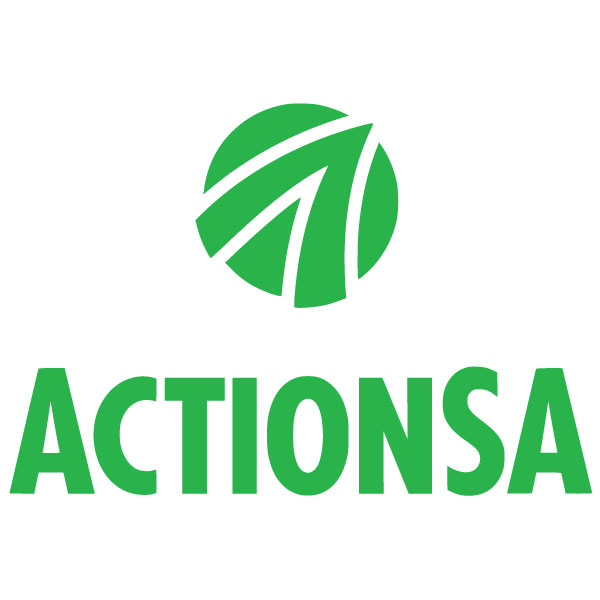 ActionSA manifesto
ActionSA manifesto
Former DA Johannesburg mayor Herman Mashaba, the Hair like Me business tycoon who turned to politics in December 2015, is charting his own course. The motto is #LetsFixSouthAfrica, the party colours bright green and the appeal to “patriotic South Africans that are committed to professional and ethical public service…”.
Councillors, council and corruption
- Appoint ethical and competent officials with proven public service commitment.
- Lifestyle audits; dedicated municipal forensic investigation capacity.
- Minimum turnaround times for, for example, repairing potholes and water leaks linked to service standards charters for officials.
Water, sewage
- Ensure universal access to potable drinking water of “stringent health standards” by building new, and repairing and maintaining existing, infrastructure.
- Work towards universal access to basic sanitation; upgrade ageing municipal sewerage networks.
Municipal basic services — and more promised offerings
- Cleaning public spaces with communities, while tackling illegal dumping and promoting a reuse/recycling culture. Waste pickers to be included in the recycling economy.
- Regular refuse removal across formal and informal residential areas.
- Fair, equitable rates and free basic services for indigent households; cutting non-essential spending on travel and catering so annual rates, taxes and tariff increases are minimised.
- Maintaining electricity transmission infrastructure, cracking down on illegal connections and cable theft, while investing in independent power producers to ultimately end reliance on Eskom.
- Extended opening hours for key services like clinics and libraries, to stay open also on weekends and public holidays.
- Extended access to affordable high-speed broadband, particularly to poorer communities.
- Lobby for funding and authority so municipalities can step in where national government “fails to process undocumented foreign nationals”.
On the local economy front
- Opportunity Centres with private-sector partnerships to support youth in economic participation, including skills training.
- One-stop shops to attract investment, while repealing outdated/restrictive regulations — and overhauling trading bylaws for street and informal traders’ economic growth.
- A property audit to identify and transfer abandoned and hijacked buildings to the private sector for mixed-use developments including affordable housing and student accommodation.
Also in the running for the 1 November municipal poll
Cope held a low-key manifesto launch in Kempton Park on Heritage Day with the motto “Defend the Constitution” setting out a focus on manufacturing, infrastructure and jobs. Also talking jobs, better healthcare and housing and more is the Patriotic Alliance, or self-proclaimed “The Last Hope”, focused on campaign trail appearances bolstered by May’s by-elections when it took two wards off the DA in Johannesburg’s Eldorado Park.
The African Christian Democratic Party (ACDP) will launch its manifesto on Saturday, 2 October.
 The African Transformation Movement (ATM) will contest its first local government elections with its launch also on 2 October, at the Zamukulungisa TACC Hall in Mthatha, Eastern Cape.
The African Transformation Movement (ATM) will contest its first local government elections with its launch also on 2 October, at the Zamukulungisa TACC Hall in Mthatha, Eastern Cape.
Also on Saturday, and also in Mthatha at the Ngangelizwe Stadium, the United Democratic Movement (UDM), that has already hit the campaign trail, will formally launch its manifesto for, among other pledges, ethical governance, communication with communities to establish needs, quality basic services and removing red tape to stimulate local economies.
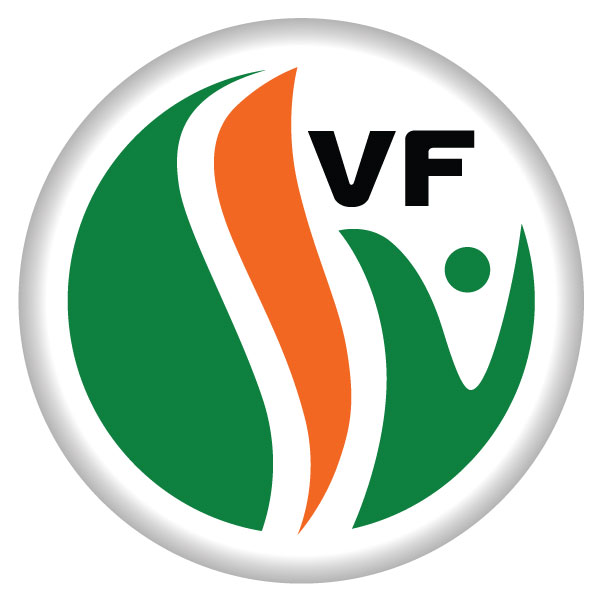 Bringing up the rear is the Freedom Front Plus that on 9 October launches its election manifesto based on its eight-point plan for improving municipal management and service delivery by appointment only on merit, establishing free trade zones for economic development, ending the “unnecessary changing of place and street names”, and fair taxes and tariffs.
Bringing up the rear is the Freedom Front Plus that on 9 October launches its election manifesto based on its eight-point plan for improving municipal management and service delivery by appointment only on merit, establishing free trade zones for economic development, ending the “unnecessary changing of place and street names”, and fair taxes and tariffs.
And then there’s more — a choice of independents and newcomers
Outside the regular mainstream political party offering, the Electoral Commission of South Africa (IEC) has registered several hundred independents.
And among the 1,181 registered parties, from mainstream political parties to local residents’ organisations, voters will also be able to cast ballots for newcomers like the Makana Citizens Front.

The organisation with the motto “Working for you, not for party head office” arose from the mid-2021 protests over the failure by the administration of the town previously known as Grahamstown to deliver reliable water, decent sanitation, cleanliness and repaired potholes. That’s regardless of court orders.
The Makana Citizens Front constitution includes as objectives “to promote accountable local government in Makana; improve service delivery in Makana; to eliminate nepotism and corruption in local government in Makana, and to hold to account those who have been guilty of corruption in the sphere of local government,” according to Grocott’s Mail.
Anyone thinking that campaigning, and casting a ballot on local issues is a dead-end against the might of establishment parties must rethink.
The community organisation Forum 4 Service Delivery was kingmaker in Rustenburg, the centre of South Africa’s Platinum Belt. Opposition to the 2005 incorporation of Matatiele into the Eastern Cape led to the African Independent Congress (AIC) going from 10 local council seats in the 2006 municipal poll to 55 council seats countrywide in the 2016 local elections — it was kingmaker in securing Ekurhuleni for the ANC, all the way to one seat in Parliament since 2019.
The road to the 2021 local government elections is short, but set to be of rush-hour intensity. DM















 Become an Insider
Become an Insider
same old same old impossibilities with no plan of action, no list of deliverables for which to be held accountable and no deadlines for the electorate to gauge performance by. A bunch of money-grabbing losers is all SA politicians offer us.
Yada yada yada. There are far too many small political parties in SA, each typically headed by a tin pot prima donnas who struggles at being a team player in a larger setting. They all commit to deliver more or less the same set of benefits. At local government level, revenue sources are limited and what councils can and should do is limited. What matters is whether or not they do it. It really does not matter who does it: VF, UDM, ActionSA, Blah blah blah… So now the media time and space will be taken up by little tin pot fiefs, each monotonously spouting how she/he will provide services more effectively than the rest. No wonder young people are tuning out. Ah well…
As far as I’m concerned, the ANC and the EFF wouldn’t know what a promise/commitment was, even if it slapped them in the face! Still laughing at the absurdity of this!
It should be a given that all the usual municipal responsibilities, like clean water, sewerage, cleaning, maintenance etc will be delivered professionally. Exclude that, and what’s left? Not much …
I would like to see local law enforcement step up, more self-help projects including communal gardens, an increased cultural & educational role for libraries, technical innovation, a workable plan for the homeless, a commitment to keep our rivers and waterways clean, a blockchain-based tender process, safe & integrated public transport, employment & skills transfer programmes, a halt to all the sub-contractors doing the work municipalities should be doing, and finally that Councillors will be living in the area they represent – this last point is non-negotiable.
Irrespective of which party or coalition wins – it is what happens next that scares me most!
Business as Usual: ANC wins outright. This emboldens them to double-down on prevailing developmental ideology and policies. Protect the political elite and the ‘oligarchs’ it created and now sustain them. At best, another five years on a slippery slope with socio-economic failure attributed to externalities.
Up-hill Battle: the ‘moonshot’ coalition of centre-right political parties succeeds and wins an electoral majority. The ill-conceived and inflammatory main objective to unseat the ANC rather than building an effective civil service results in a trench-war with implementation more polarised and contested.
Sore Loser: The ANC loses its majority and is unable to cobble together a coalition on terms that it finds acceptable to retain the status quo. It unleashes the power and influence of the ‘state’ that it has built since 1994. Scorched earth tactics are used to demonstrate to the marginalised majority the society the cost of their demise.
Revolving Doors: The ANC desperation to retain power leads to a left, or far left political coalition. A ‘radical economic transformation’ policy shift is the trade-off. Flammable and polarised ‘useful idiot’ leadership and umshini wami contestation.